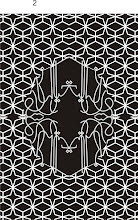Tangas going off the road
Tanga or tonga in English, a horse-drawn wooden carriage used for transportation, is fading with the passage of time as rickshaws have left them far behind in this fast-paced era.
Tanga, besides being a fine mode of transportation, is a cultural symbol as well and people usually enjoy riding it because it does not cause much noise pollution and is cheaper to hire than a rickshaw. Before bringing it on the road, a set of ornaments is used to control the movements of a horse that includes headgear, a headstall, a bit and a metal for the animal’s feet.
The set of instructions used by the coachman or kochwaan to steer the horse also seem a unique piece of communication between a man and an animal as a single pull of reins makes the animal understand the command. The music produced from the movement of the horseshoe nailed to the hooves of the horse also sounds well.The popularity of this means of transportation can be assessed from the fact that it has been used in the literature as well. Songs like Tangay wala khair mangda and Mard tangay wala accurately reflect the tanga culture of our society. The main reason of their decreasing numbers is also their main characteristic as well. Its slow pace, once loved by its riders, is not in demand anymore as everyone seems to be in a hurry. People have adjusted to the fast paced life of thios modern day, they dont have time for a slow ride and enjoy the surroundings, looking at the signboards while riding this majestic horse-driven carriage. They dont even pay any attention to the clap clap sound produced by the horses feet on a metal road.
Their large wooden wheels lack shock absorbers and cause jolts on an uneven road but this deficiency never affected the carriages popularity. Presently, they are mainly found in older parts of the cities and towns, and are becoming less popular for travel due to the arrival of auto rickshaws.FRAAZ MAHMUD


No comments:
Post a Comment